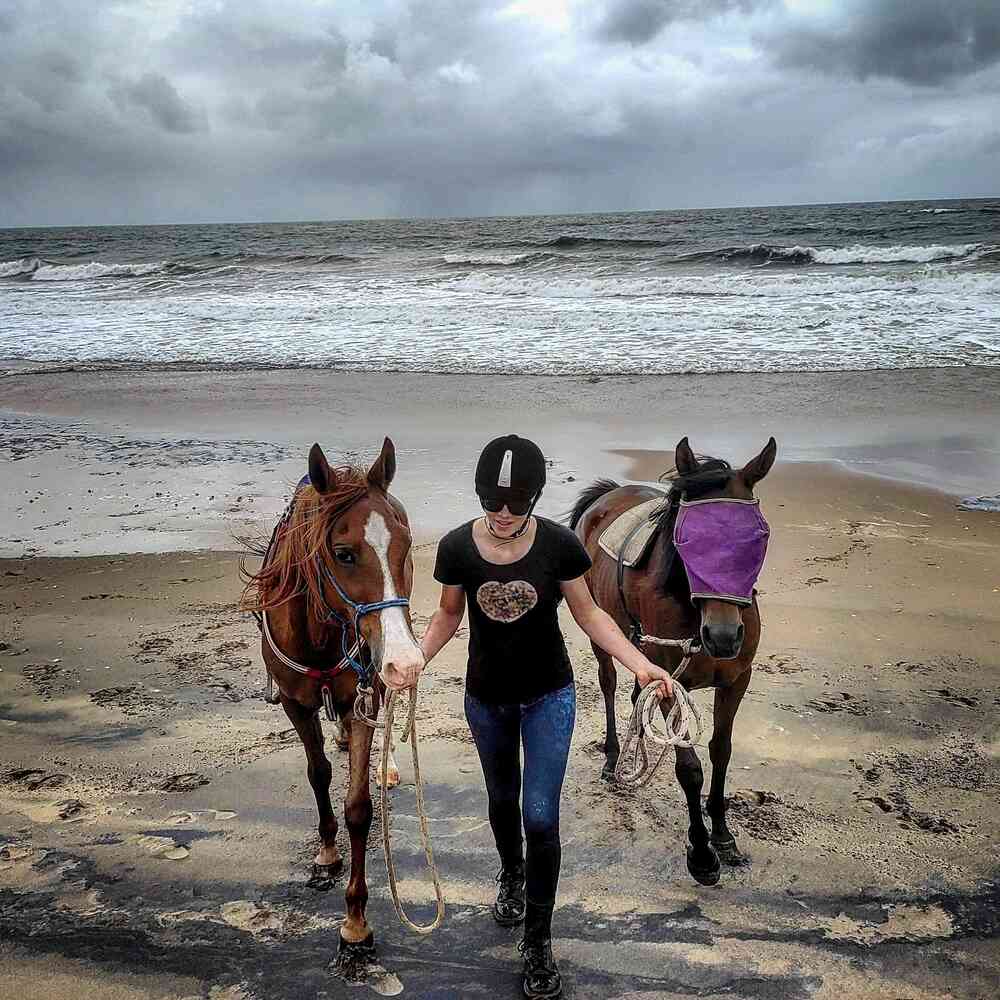Stock routes and slow travel
Sharon Bonthuys
02 October 2023, 6:40 AM
 Shané Steffen will swing through Narromine on her 1,100 kilometre journey
Shané Steffen will swing through Narromine on her 1,100 kilometre journeyRetracing the footsteps of the drovers, 27-year-old Queensland farmer and adventurer Shané Steffen will spend up to eight weeks in the saddle early next year, travelling the stock routes south from Goondiwindi to Tocumwal.
The Azadi Far Ride to the Murray will set off in mid-March 2023 when Ms Steffen and her two endurance horses, Glory and Melika, cross the Queensland-NSW border and head for the first town on the 34-leg trip, Moree.
From there, the trip will head to the communities of Narrabri, Boggabri, Mullaley, Tambar Springs, Coolah, Leadville, Dunedoo, Elong Elong and Dubbo. The trip will then weave its way south via Narromine, Peak Hill, Parkes, Forbes, Marsden, West Wyalong, Ardlethan, Grong Grong, Narrandera, Jerilderie, and finishes in Tocumwal on the Murray River and the NSW-Victorian border.
Ms Steffen, who lives on a property between Gin Gin and Bundaberg in Queensland, plans to stop in eight communities along the way and spend time getting to know the locals. She’s not quite sure how long the journey may take, but says between six to eight weeks is a good guess.
“There will be at least eight to 16 days where we will be stopped in those towns talking with those communities. We could do it faster, but that’s not the point.”
The objective of “slow travel” is to promote connection between travellers and the communities, places and spaces they visit. Extended stays provide the travellers with rich and meaningful experiences while also bringing economic benefits to the communities visited.
Unlike many other endurance journeys that are linked with particular fundraising initiatives, the Azadi Far Ride is not raising funds.
The 1,100-kilometre journey on horseback is named for the Persian word for “freedom” and has three particular aims.
“The purpose of [the far ride] is to raise awareness of stock routes and promote eco-tourism and slow travel. There’s no fundraising or charity that aligns with that. The initiative itself is worthy,” Ms Steffen said.
The condition of some stock routes is of concern to Ms Steffen, who says they are an existing asset with heritage value.
“I’m afraid if we don’t use it, we’ll lose it. I see the most viable way to sustain it and to sustain the communities there is to diversify its purpose."

Her stock route travels will take her far from the ocean, Ms Steffen with her endurance horses, Glory and Melika. PHOTO S Steffen
While she might start the journey alone, others are already planning to join her at various points along the way, supporting the eco-tourism and "slow travel" elements of the initiative. Some will ride horses, some will ride bikes, and some even intend to walk.
“We plan to feature the stories of these people, the travellers we meet and the travellers who join us for sections of the ride on our website,” Ms Steffen said.
Participants are welcome to join the ride at any stage, she said.
Although Ms Steffen is not new to endurance riding, the bold overland trek next year will be a first. An engineer, agricultural scientist and farmer by profession, her love of the land began as a child and she has been involved with agriculture ever since.
“I got into agriculture at a really young age and I started out as a jillaroo,” she said, indicating she spent some time on sheep stations in central NSW earlier in her career.
Ms Steffen has also worked as an agronomist, provided agricultural consulting services to several companies and served as a non-executive director of the peak industry body Protected Cropping Australia Ltd before starting Azadi Agriculture in late 2020.
Planning for the ride is at an advanced stage and Ms Steffen is grateful for the support provided by NSW Local Land Services in this process.
“When I first had the idea to do this, I reached out to Local Land Services about it and they were really supportive. They really helped with mapping it all out as well.”
Ms Steffen would like to connect with communities and organisations along the route that may be able to help identify suitable areas to camp with the horses. If you would like to know more, participate or provide support, further details about the trek can be found on the Azadi Far Ride website.



